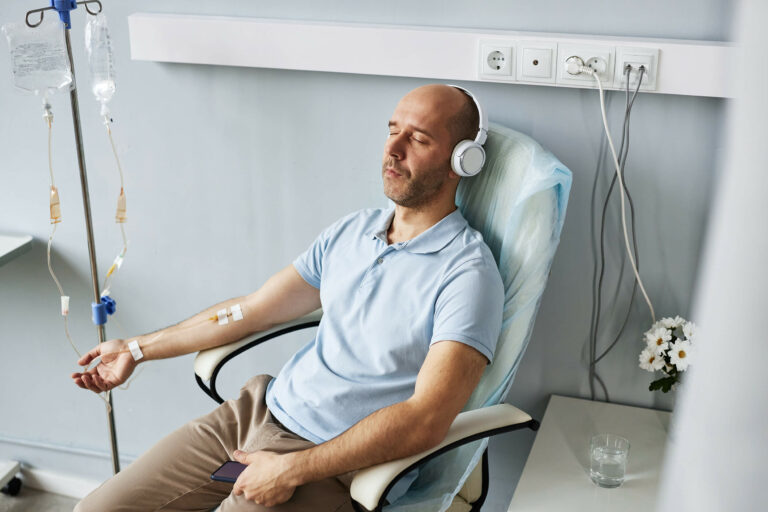How Can You Contribute to Clinical Research as a Healthy Volunteer?
Did you know that medical treatments, from the newest to the most well-known, all have something in common? That something is the clinical research process. Before any new treatment becomes widely available, it has to go through this process to make sure it’s safe and effective.
For clinical research to take place, there needs to be participants: everyday people who get involved. You may assume that everyone in a trial has a medical condition. After all, it would make sense that to test new treatments, there needs to be a disease or condition to treat. While people with relevant conditions definitely do participate, clinical research needs healthy volunteers too!
Read on to find out why healthy people play a key role in research and learn how you can get involved.
First Things First, What Is Clinical Research?
Before we get into how healthy volunteers contribute to clinical research, we need to cover the basics. What exactly is clinical research? In short, it’s the process of studying new discoveries in medicine to find out how they can help patients.
Some types of clinical research are observational, meaning they gather health information and look for patterns. Clinical trials, on the other hand, test something new: a medication, device, procedure, etc. Before this new discovery can become available to the public, the clinical trial process tests that it is safe and does what it’s supposed to do as well as or (ideally) better than existing options.
The Phases of a Clinical Trial
The clinical trial process is split into different phases:
I — Pre-Clinical/Phase 0 (Pre-Clinical) — Before testing in humans, scientists study the new discovery in the laboratory
II — Researchers find the right dose and gather information about safety, often using healthy volunteers
III — These trials evaluate effectiveness and side effects in the population that will eventually use the product
IV — This phase continues to confirm that the product is safe and effective, compares it to any currently available options, and monitors potential negative effects
V — After the FDA approves the new product and it hits the market, it is still monitored to see if new side effects and risks develop and if it continues to be effective
So, Why Use Healthy Volunteers in Clinical Trials?

In observational studies, healthy volunteers can serve as a comparison to participants who have the condition researchers are studying. In clinical trials, healthy participants are usually involved in Phase I. This is because in many cases, patients who have the condition the new product aims to treat are more at risk during these early steps.
However, Phase I trials don’t always involve healthy participants. It depends on the specific risks. For example, cancer-related trials will often use patients with the targeted type of cancer, even in Phase I.
In some cases, like vaccine trials, healthy volunteers participate across all phases.
Can Anyone Be a Healthy Volunteer?
“Healthy volunteer” may seem like a pretty straightforward description, but the exact definition and who qualifies will depend on the specific trial. Researchers specify requirements for age, weight, medical history, and sex. They’ll perform a screening process, which may involve asking questions and/or a medical exam similar to an annual checkup, to confirm that you’re eligible. Just because you don’t meet the criteria for one trial doesn’t mean you can’t be a healthy volunteer in a different one.
One common misconception is that women can’t participate in trials — this is not the case! While the FDA prohibited women of “childbearing age” from participating in Phase I trials from 1977 to 1993, there are no current restrictions. Having more women participate in trials is essential for making sure new drugs and products are safe for both men and women. That being said, some trials may restrict participants based on sex depending on the specific risks.
The Benefits of Trial Participation
While healthy volunteers don’t receive focused treatment for a condition they have during a trial, this doesn’t mean they don’t receive any benefits.
One of the biggest reasons people choose to participate is to help others. Without clinical trial participants, there would be no new treatments or cures for diseases. By taking part, you are saving and improving lives in your community and beyond.
Additionally, clinical trials almost always involve financial compensation for healthy volunteers. The payment depends on the trial, but compensation can be up to thousands of dollars.
Understanding the Risks
It is impossible for trials to guarantee there won’t be any negative effects. This is one reason healthy volunteers are compensated, because researchers understand that they are taking a risk by participating. However, researchers have a duty to minimize risk and keep participants safe, and there are strong safeguards in place, like monitoring by medical professionals, to ensure trials are conducted responsibly.
Informed consent is crucial in clinical trials. This means that researchers need to clearly communicate any and all risks to you. If you have any questions or don’t fully understand something, ask. Additionally, keep in mind that you can stop participating at any time, even once a trial has already started.
Ultimately, the decision to participate in a trial is a deeply personal one. Only you can decide what is right for you.
Okay, I’m Interested — How Do I Get Involved?
If you think participating as a healthy volunteer is right for you, the first step is researching available trials that you could qualify for. Clinicaltrials.gov is a great place to start. You can search specifically for trials that are taking healthy volunteers and filter based on your location and other criteria. Other search tools, like Antidote, can also help find trials near you.
Additionally, you can explore the various resources on our site to keep learning more about trials and how you can get involved, whether you choose to participate or simply spread awareness. Thank you for being a part of the future of medicine.






